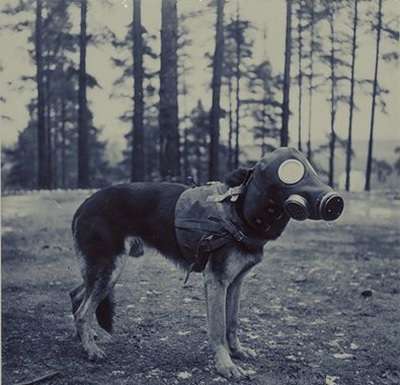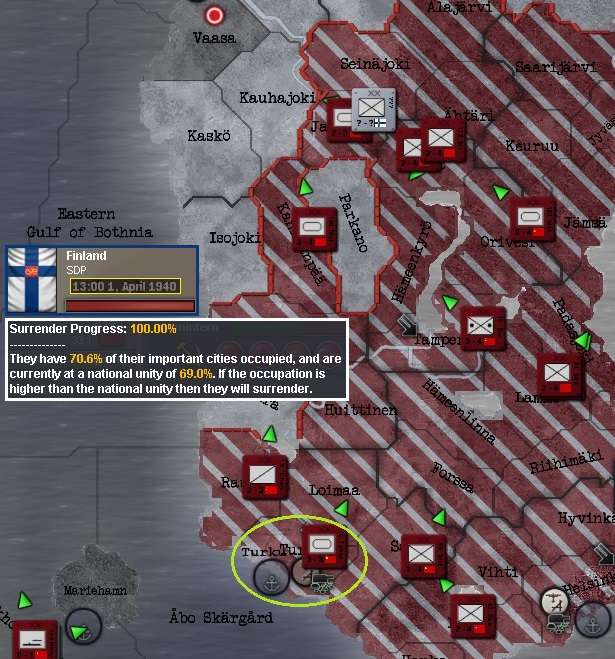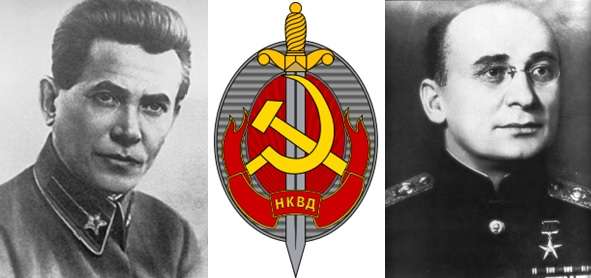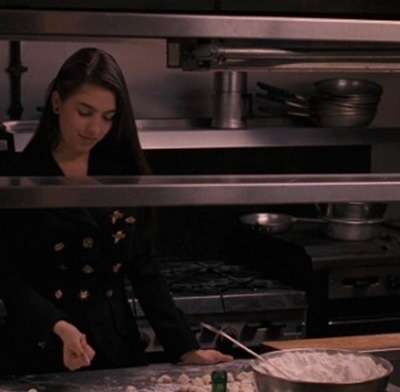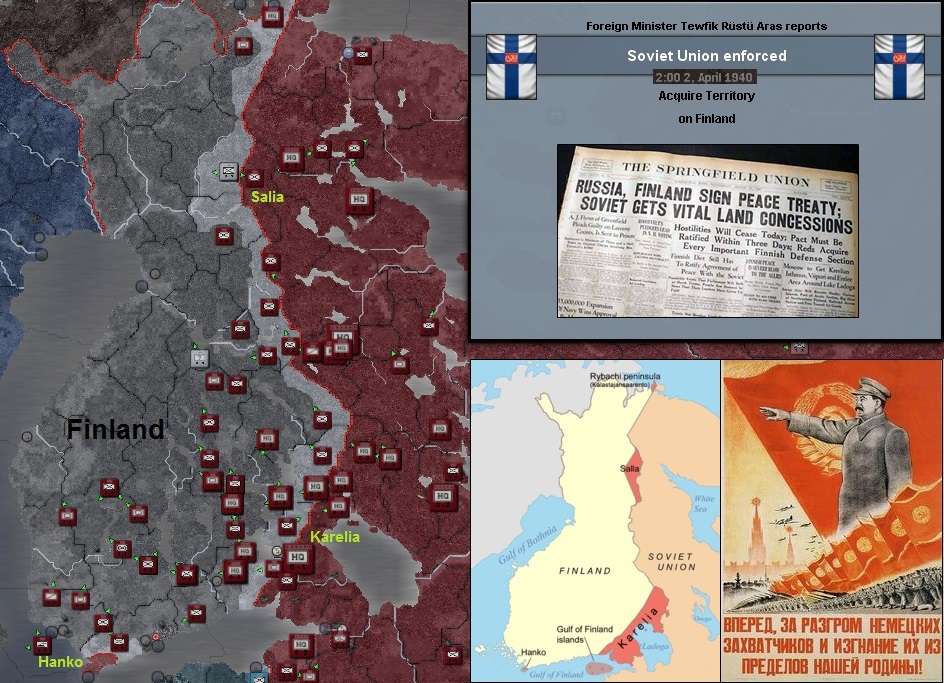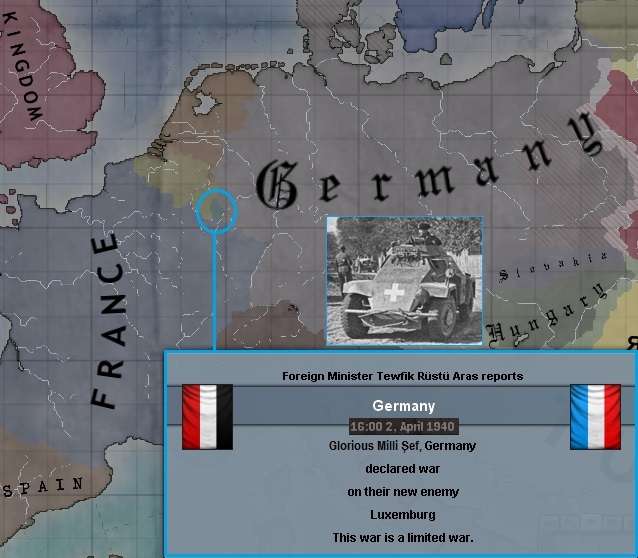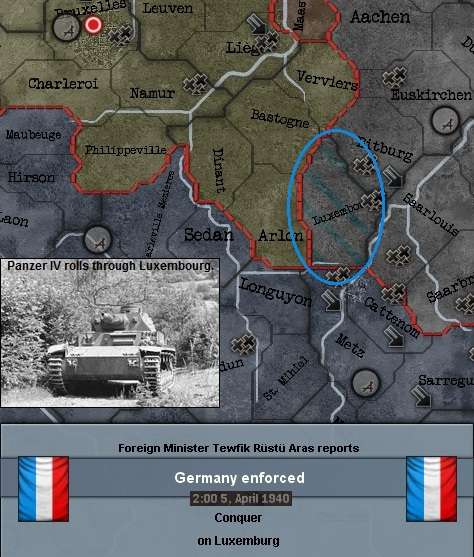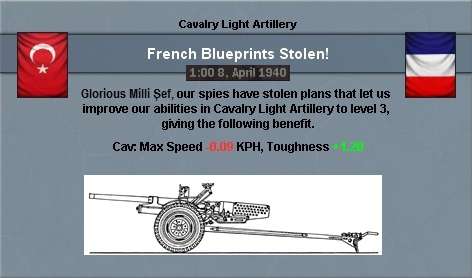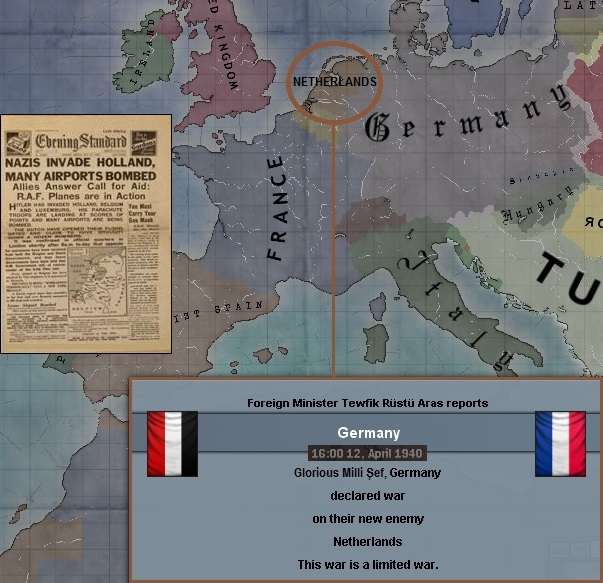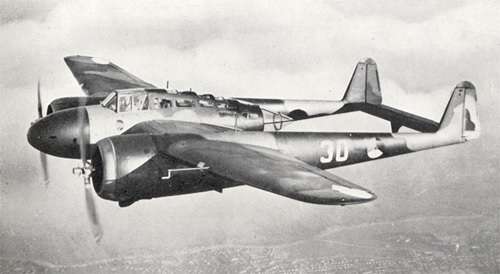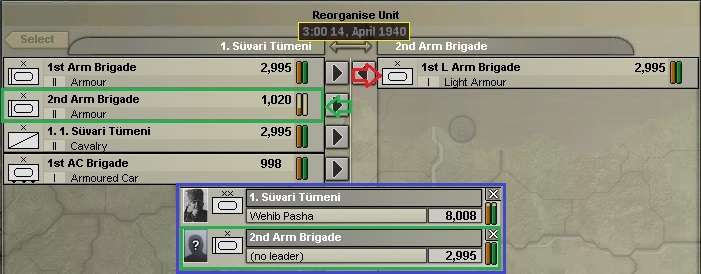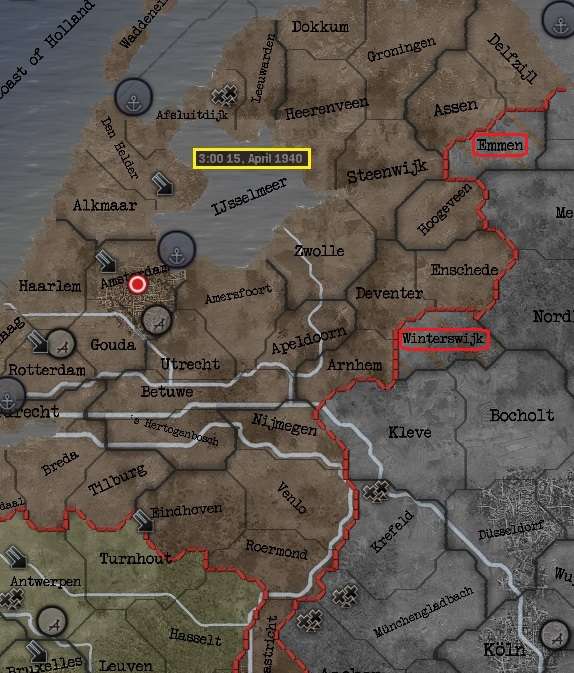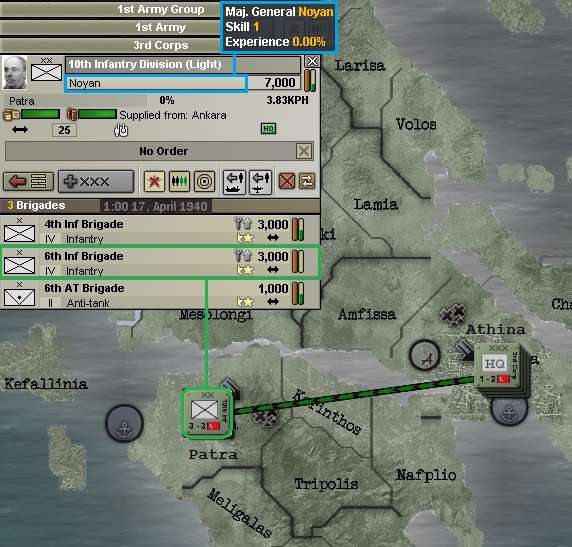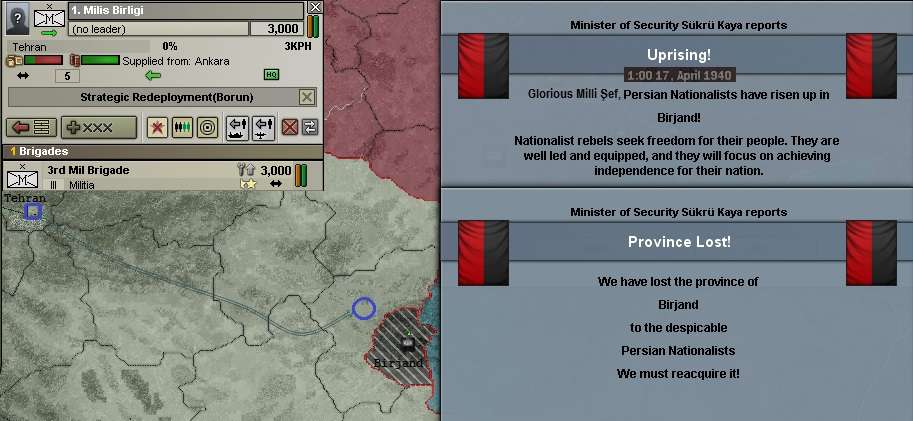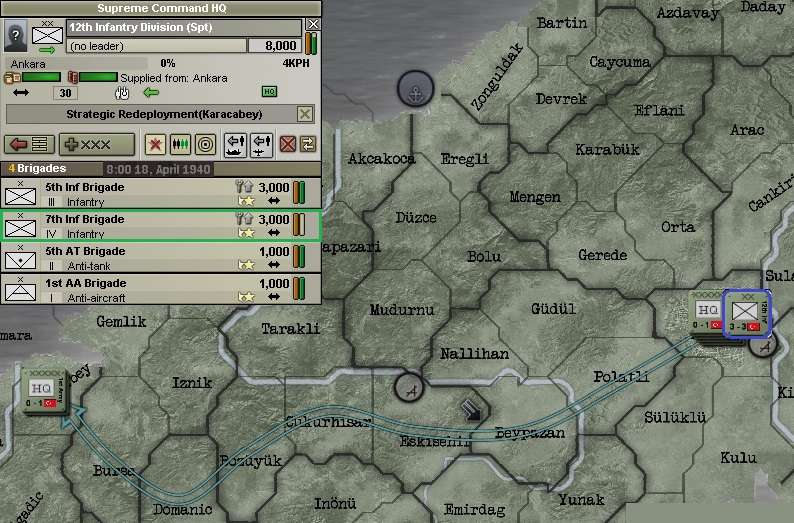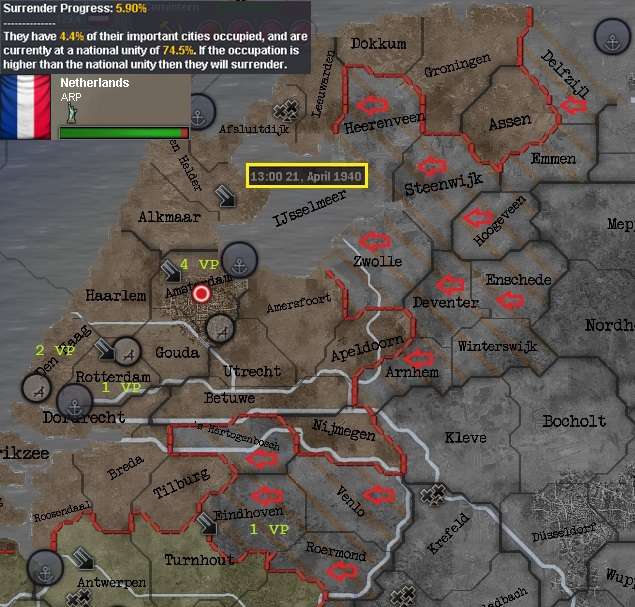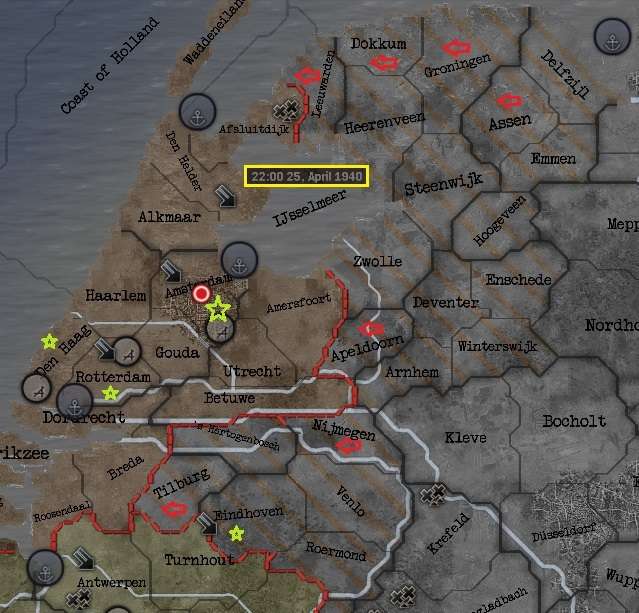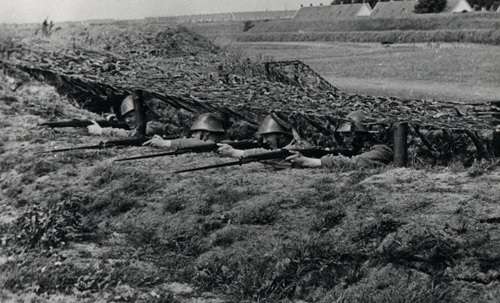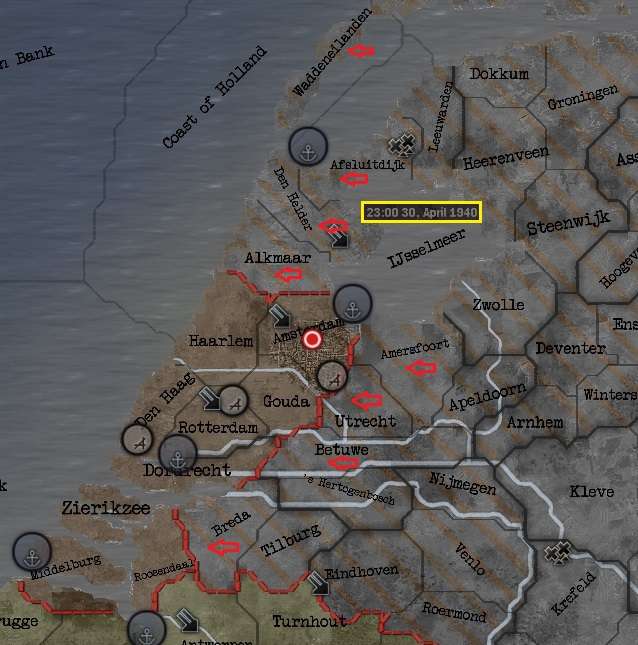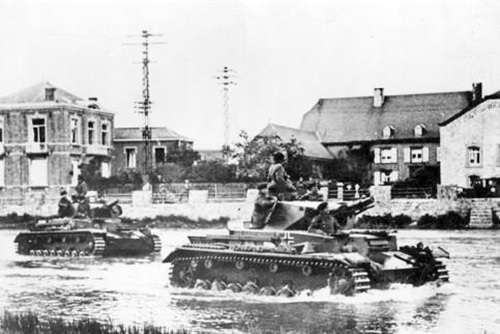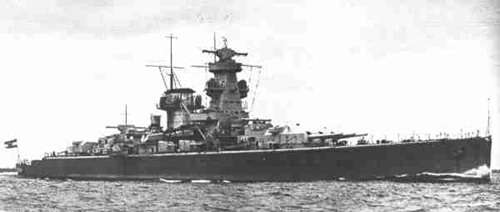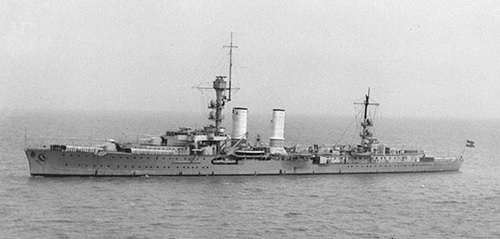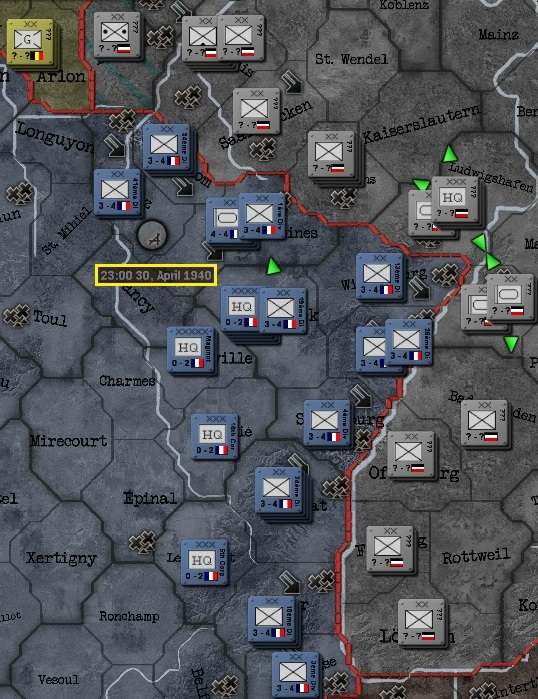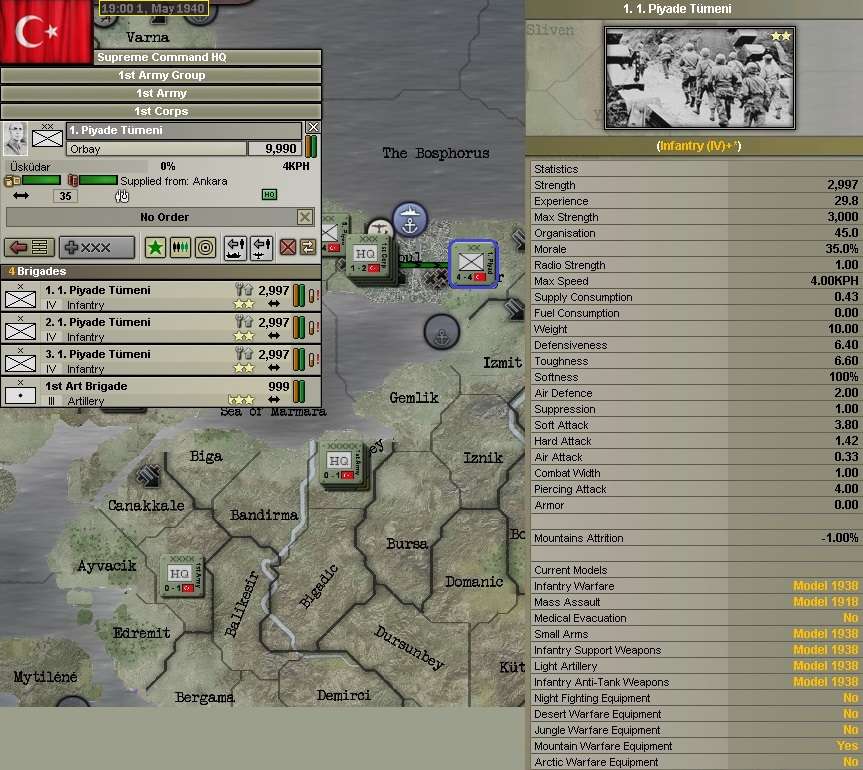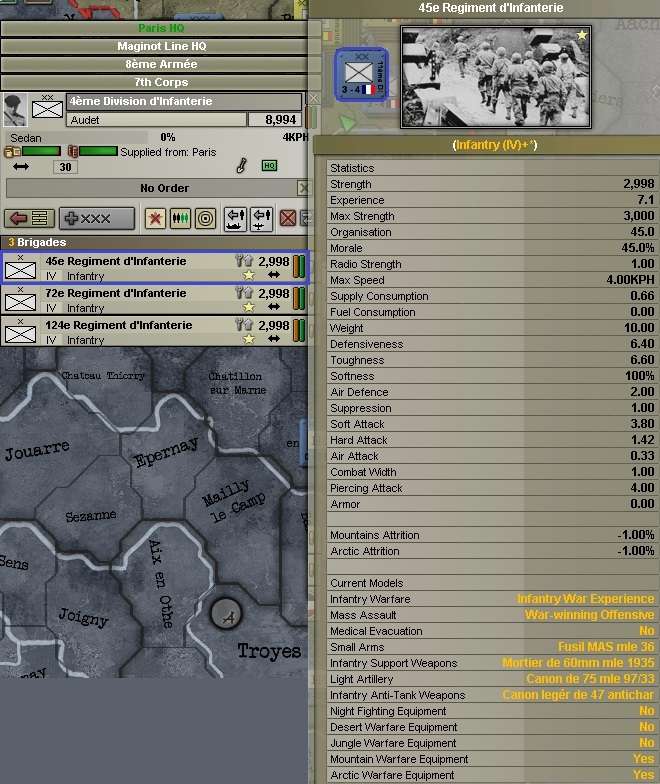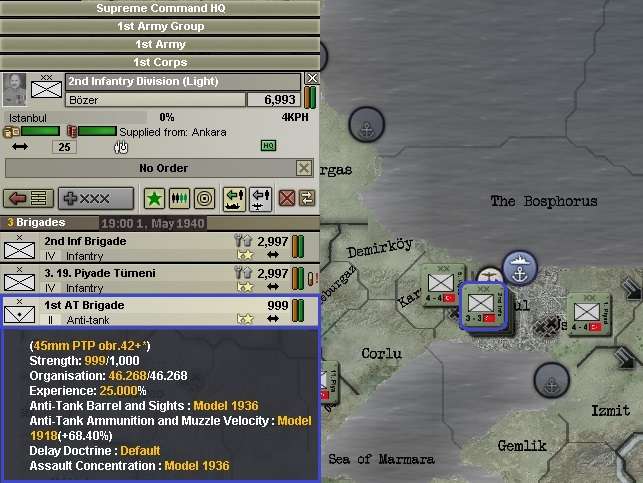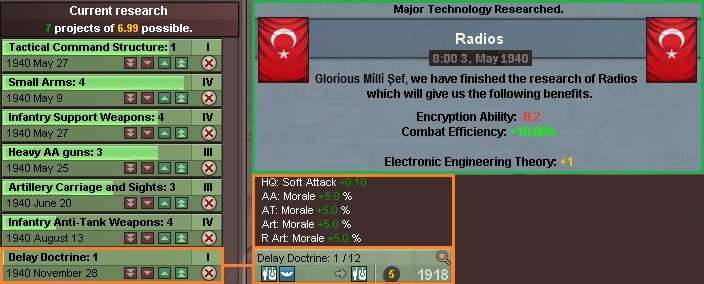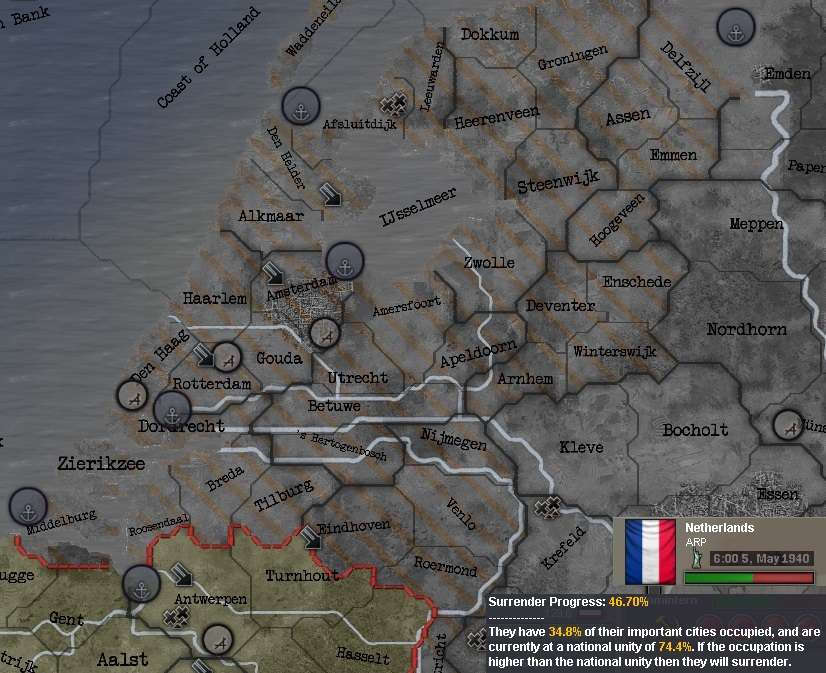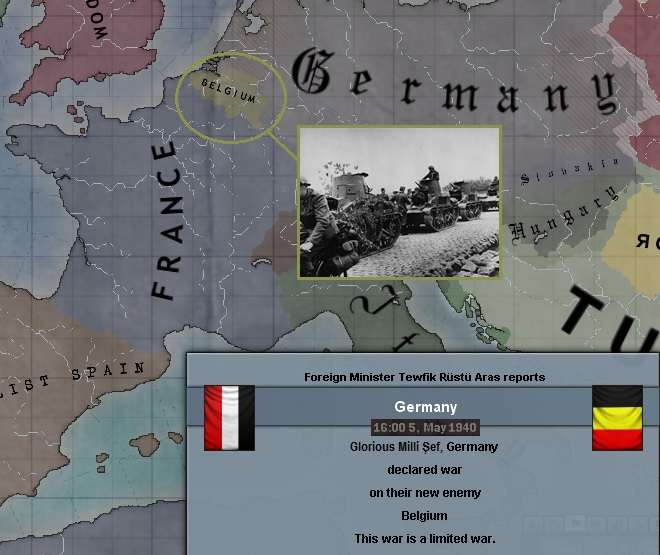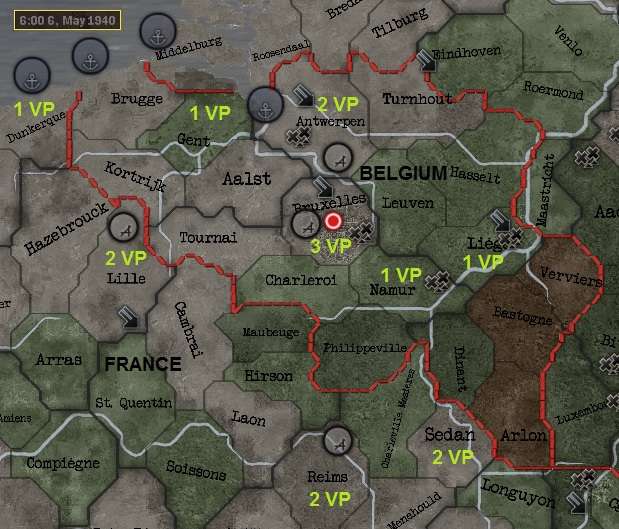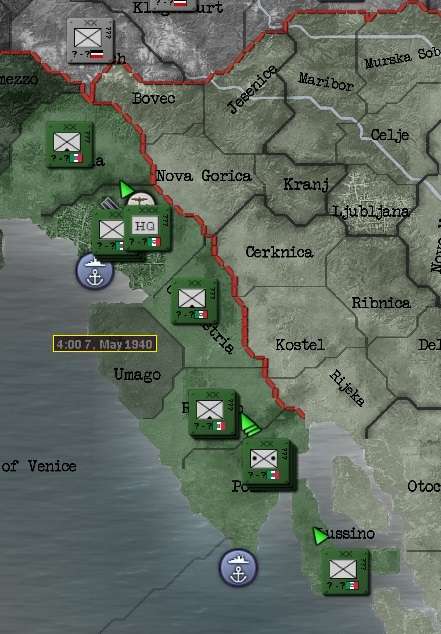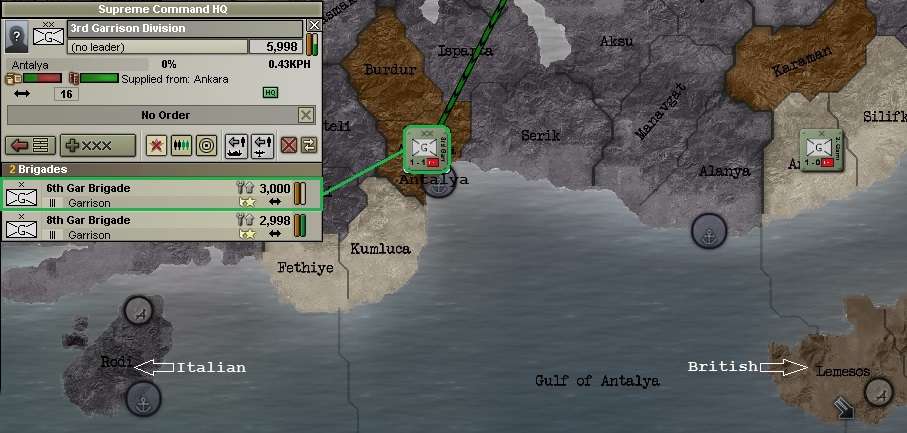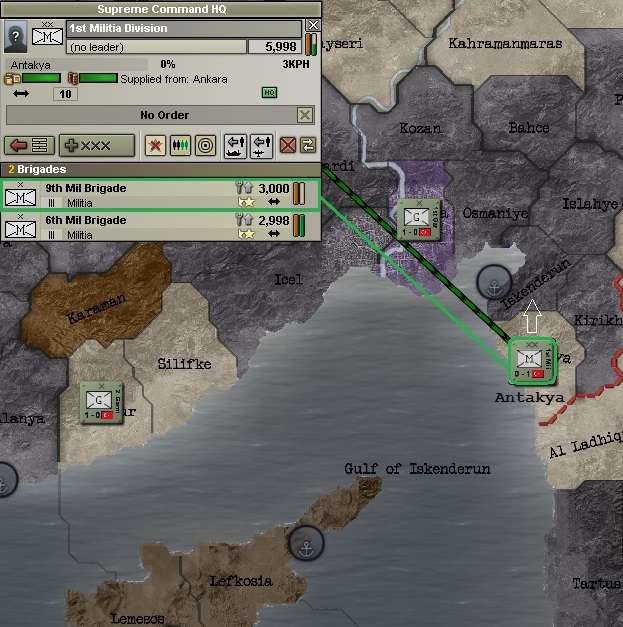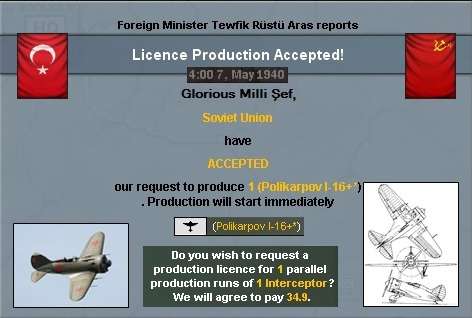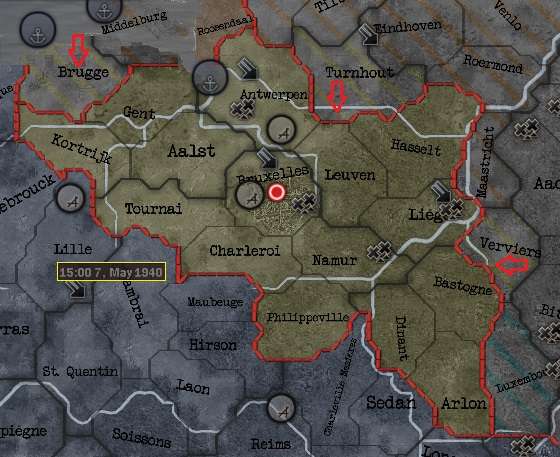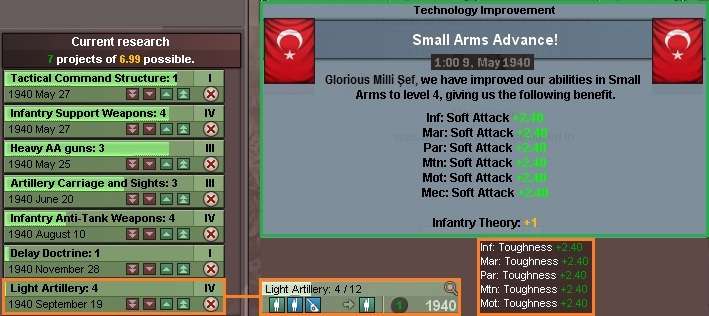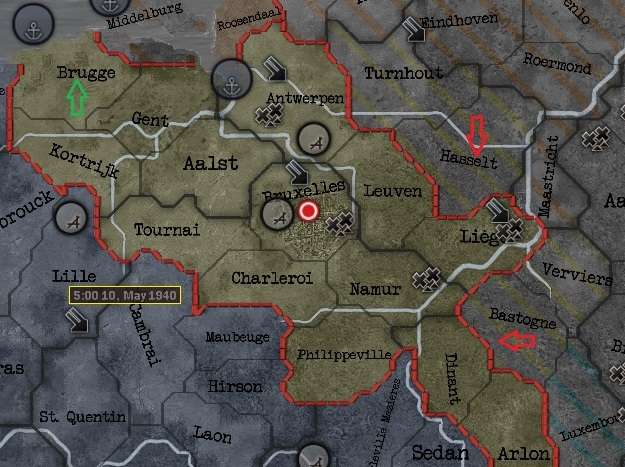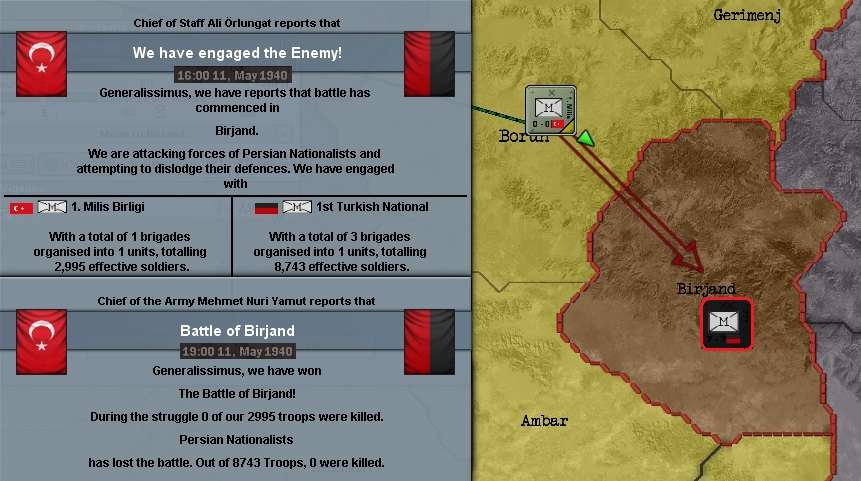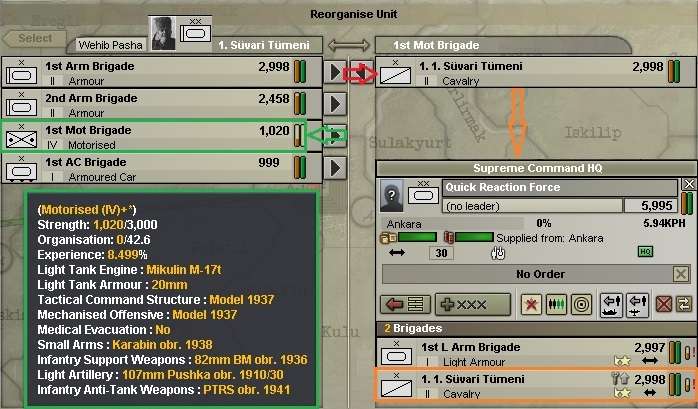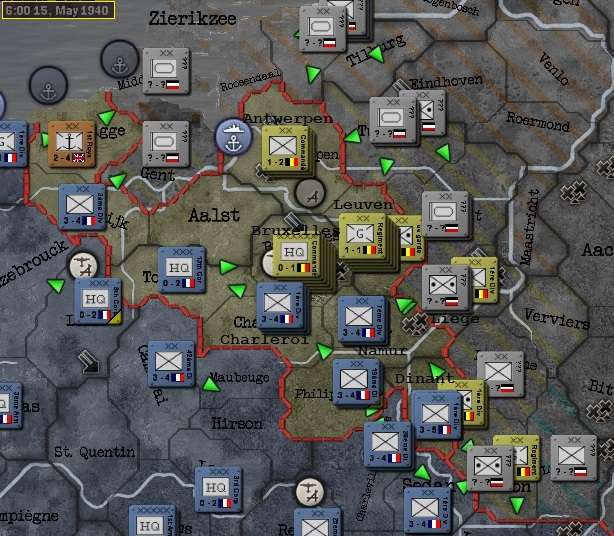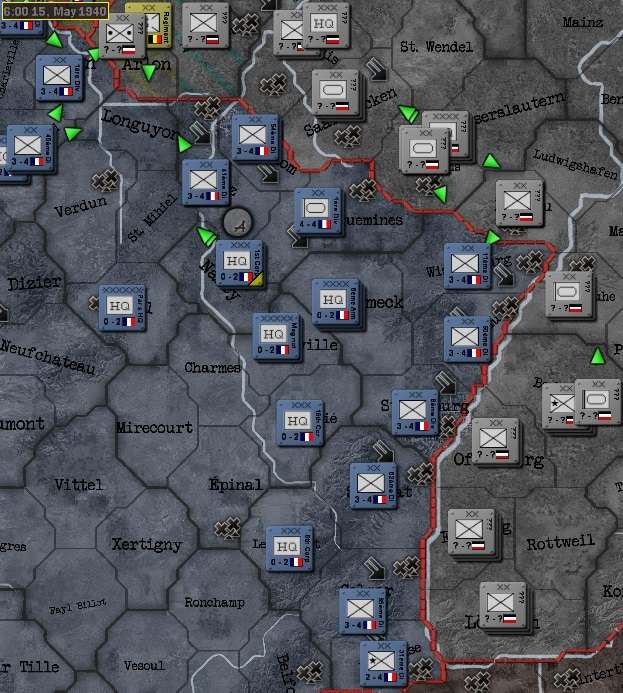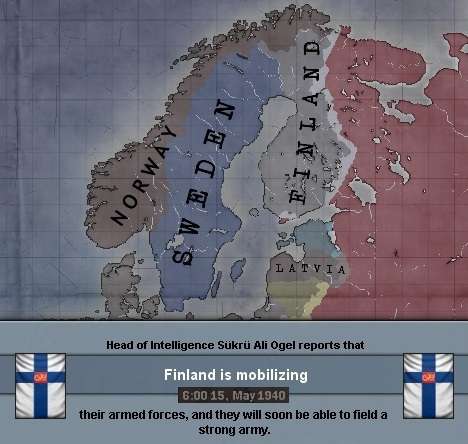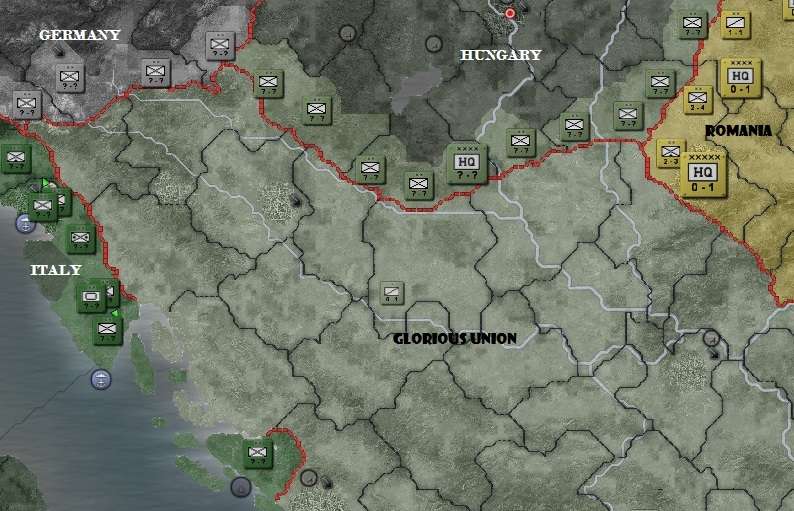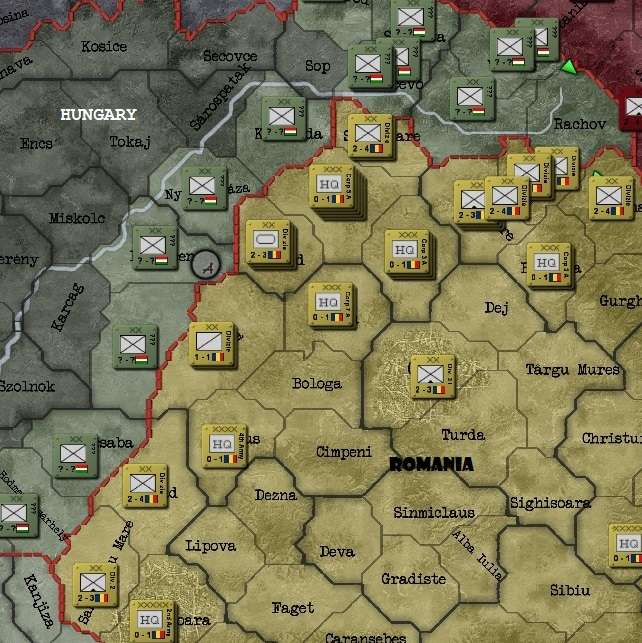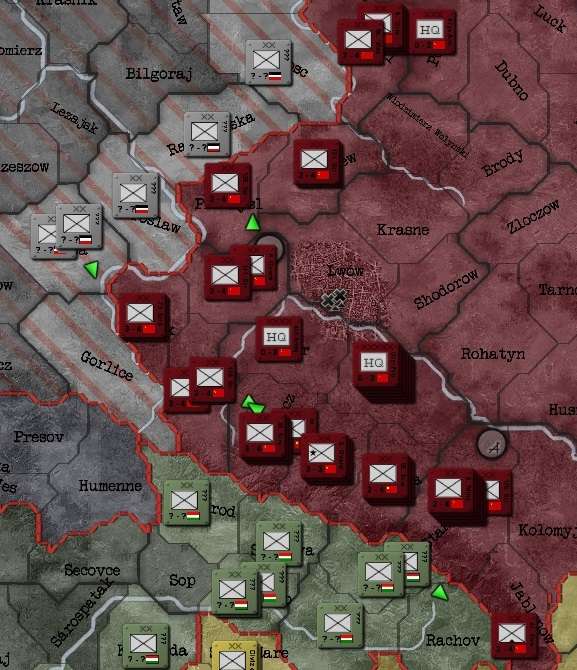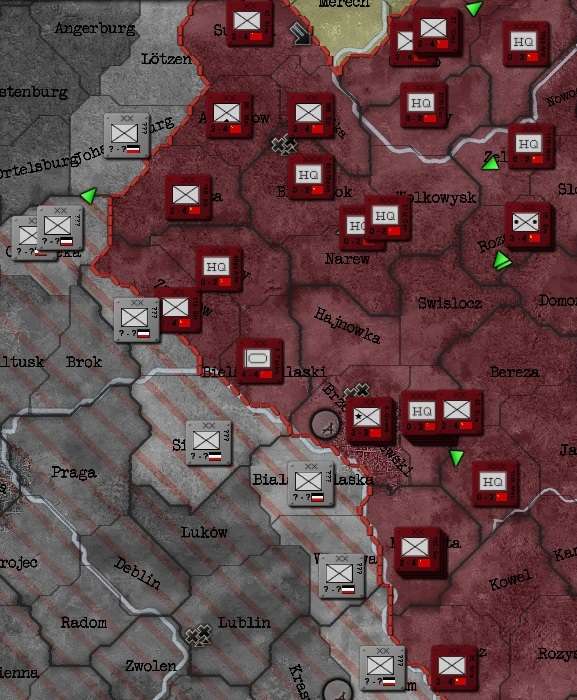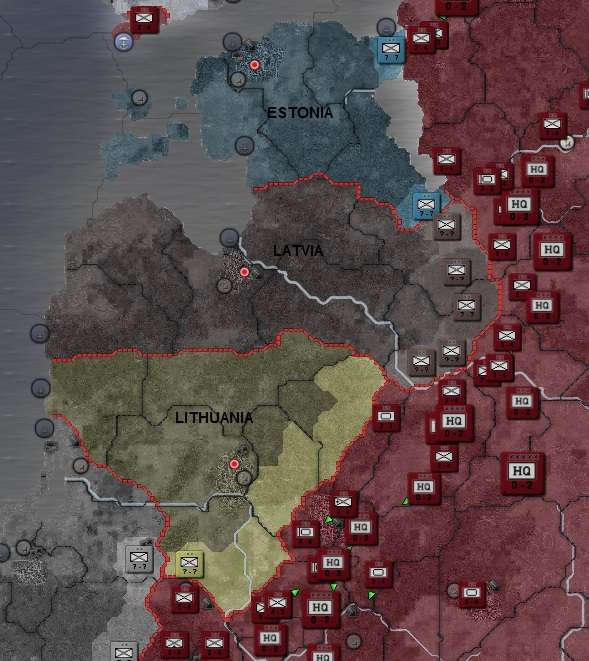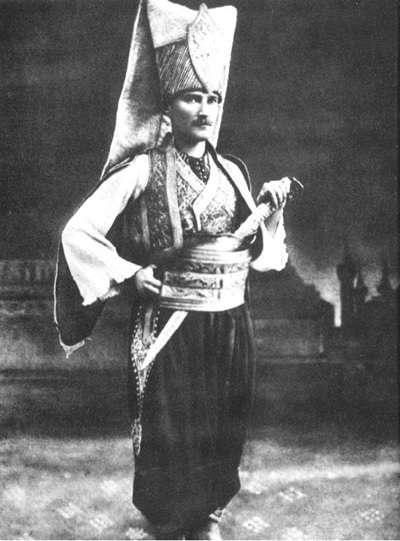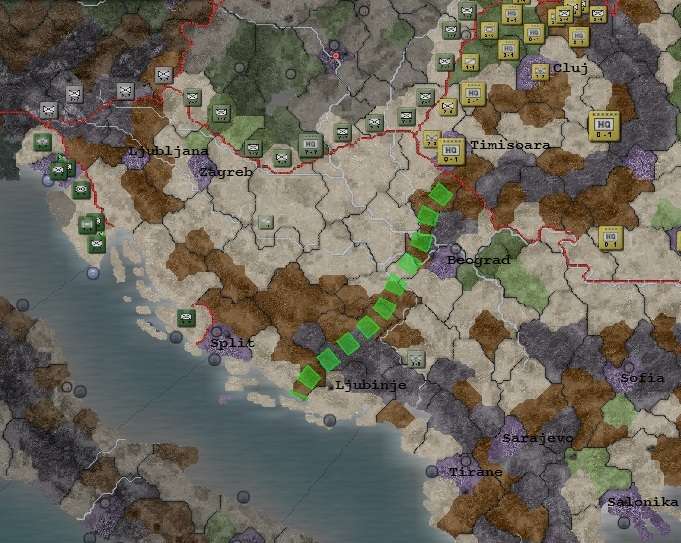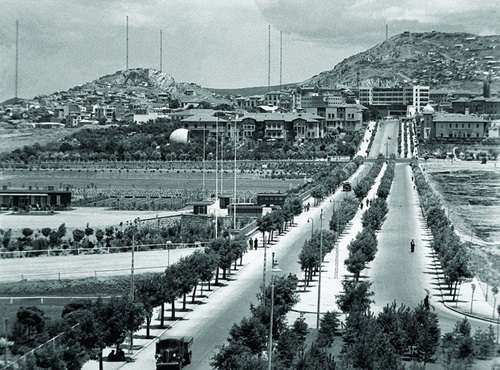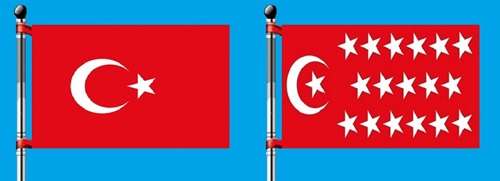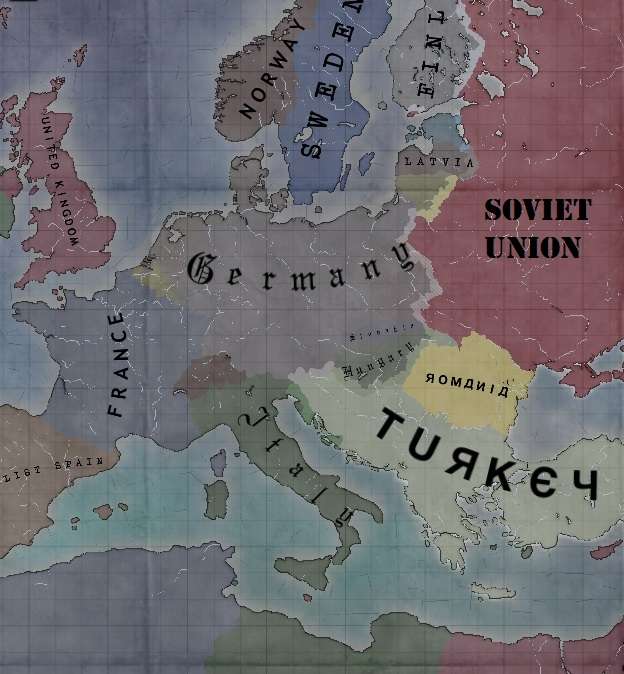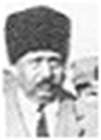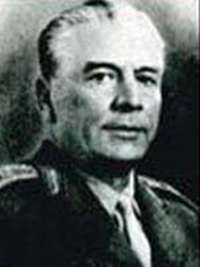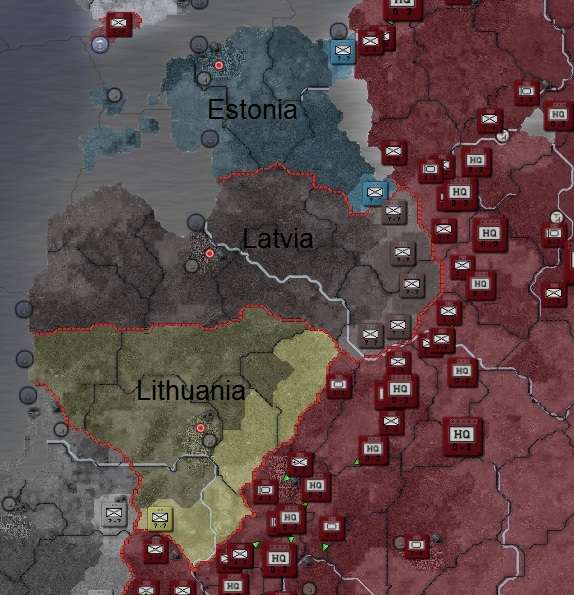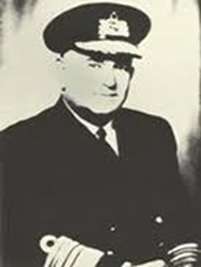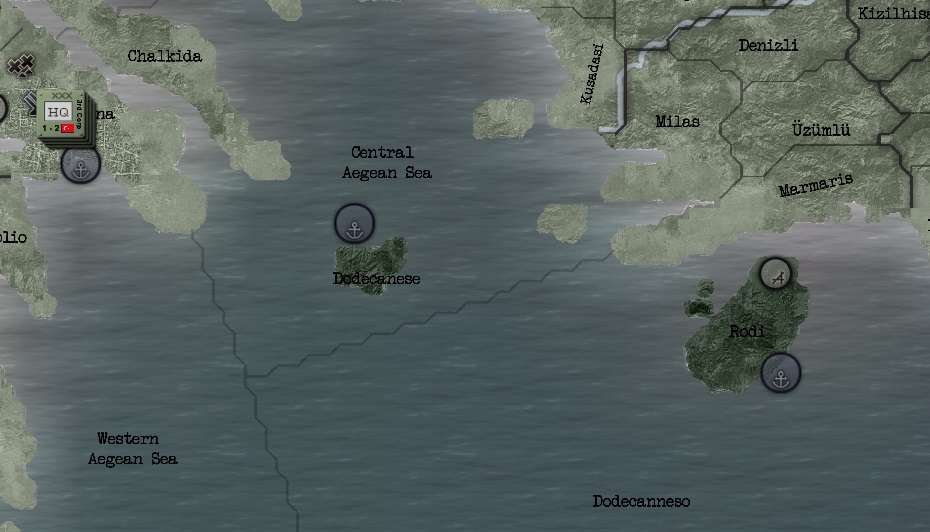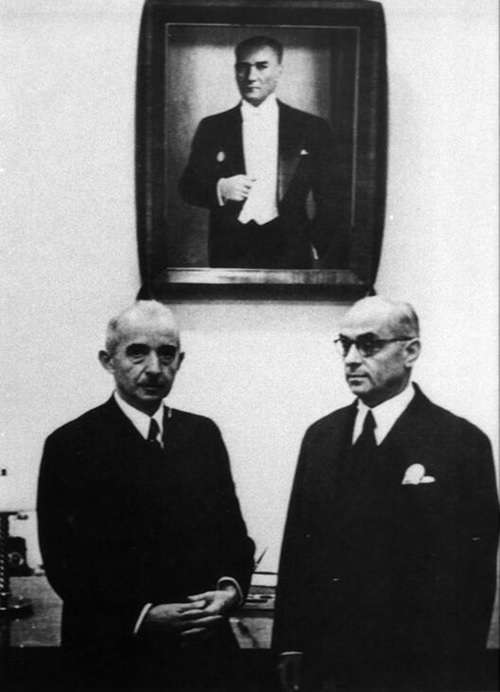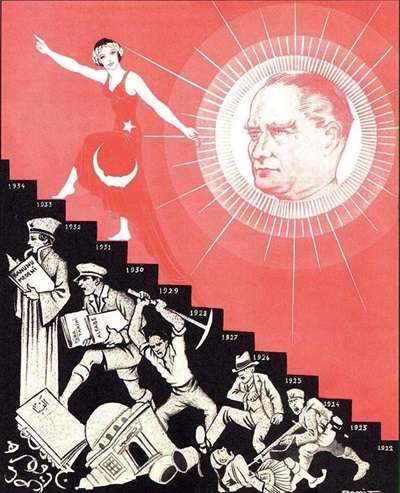Chapter 75: Special War Cabinet Meeting (15 May 1940)
Ankara, 15 May 1940. Unknown to the general population, who are just getting used to a period of peace, great decisions are being taken behind closed doors.
15 May 40 - Ankara
The flags of Turkey and the Union of Glorious National Republics.
President Ismet Inönü calls the most crucial Cabinet meeting of his presidency so far to order. At stake is a decision about whether to take the war to the Axis early or to hold back, adhering to the course of action that has been Turkish policy for the last three years: to keep war away for as long as possible, let the West fend for itself, withstand an expected Axis onslaught behind carefully prepared defences, then after 2-3 years of grinding warfare alongside the Soviets, hope to take the offensive and defeat the Fascists.
But the securing of the Comintern alliance, some initial promising resistance from Belgium and France in the West and advice from the Foreign Ministry that the Comintern would support a Turkish declaration of war has got important people thinking. What a few weeks ago was just a marginal ‘what if’ is now being treated very seriously, given how thin the Axis eastern defences are now looking. It could be a once-in-a-generation opportunity - for glorious victory. Or hubris before a humiliating defeat.
Inönü begins: “You all know why we are gathered today. And you have all read the briefing material for this meeting. We will quickly recap the key points, you may put your views and then, in what has become our traditional Cabinet process, myself and the Prime Minister will retire to discuss the decision, which I will make as President of Turkey and
Milli Şef of the Union of Glorious National Republics. Let us begin with a short report from Foreign Minister Aras.”
Dr. Tewfik Rüştü Aras (b. 1883). Foreign Minister of Turkey since March 1937. Noted pro-Comintern diplomat, brought in deliberately to draw Turkey towards that bloc – mission accomplished!
Aras gets straight into his subject. “My staff have double checked the letter of the Nazi-Soviet agreements we are aware of and Intelligence Head Ögel’s analysts agree: if
we declare war on the Germans, the rest of the Axis will almost certainly declare war on us. We are sure Germany will require its allies to retaliate against us. And we are sure they will answer that call, not from a feeling of mutual defensive obligation as the Allies would, but more out of a sense of bravado and misplaced feelings of destiny.”
Aras pauses for a sip of water, then continues. “Those declarations of war on us would call our own Comintern Pact into play, releasing the Soviets from any remaining non-aggression pact restrictions and giving them convenient
casus belli against the Germans and the rest of the Axis. Ögel?”
Ögel takes his cue, as arranged. “Yes, our analysis is that this will occur. We believe Stalin will welcome the opportunity to take an early crack at the Germans while their back is so invitingly turned. They would never get a better chance. Hitler will have to at least transfer some considerable defensive strength to the east to deal with the new threat. So long as the French and their Allies are still in the fight and not on the brink of collapse, this splitting of forces by the Germans should either cripple their western campaign, or if they try to persist with it, they will risk losing significant territory to our Soviet allies – first occupied Poland, then even eastern Germany – perhaps Berlin itself – would be under threat.”
Şükrü Âli Ögel, (b. 1886). Head of Turkish Intelligence, the Milli EmniyetHizmeti (MAH) (National Security Service). Has a very high reputation in Cabinet due to his good work in the short ‘police action’ in Romania and seen as a ‘straight shooter’ (in all senses of the word). Has a (fictional ATL) dark, hidden past.
“Furthermore,” Ögel continues, “this would put us and the Soviets on a full war economy footing, which the Germans already enjoy. If we wait for a year or two and the Germans beat the French in the short term, they will not only greatly expand their IC and resources, but will not have to worry about a Western land front and can devote their entire economy for preparing to invade us and the Soviets. No matter what we and the Soviets can produce, the Axis is likely to produce more over the same period and then be able to throw almost all of it east.”
Inönü now focuses discussion further: “Gentlemen, these are powerful points. But before we move into the military pros and cons, please point out the risks of an early declaration of war on the Germans and their henchmen.”
“Certainly,” nods Aras. “As I mentioned at the start, a consequence of an active declaration of war by us is the likelihood of bringing the whole Axis into the war at once. The Japanese would attack our allies in the east. Not a fatal problem for them or us, perhaps, but a serious consideration nonetheless. This would also be a distraction for the Allies, but that may not be an entirely bad thing either. We don’t want them collapsing in the West, but then we don’t want them doing too well too quickly, either!"
"Also, it would bring Italy into the war immediately, though our intelligence indicates they would be likely to stab the French in the back soon in any case. As has been argued previously, a declaration now would divide the Italians' efforts three ways – France, the east and Africa (Libya and Ethiopia). This may actually be of net assistance to the French and their chances of survival. Of course, the Hungarian Axis stooges would also be brought into the conflict, but they represent both threat and opportunity. Our military advisers will talk more about that shortly.”
“Thank you, Aras,” says Inönü. “Örlungat, what do the Armed Forces advise?”
Ali Örlungat, (D.O.B. unknown). Chief of Staff and Chief of the Air Force. [Ed. the only picture and reference I can find of his existence, including trying on the Turkish 'Vikipedia', is in HoI! So this will have to do.]
CoS Örlungat replies very carefully. “There are of course pros and cons to an early war declaration. It is a bold course, carrying greater potential benefits than waiting, but also some significant risks. How severe the risks are will depend on some variables that we can monitor, but are basically out of our hands. Let us work through them now.”
“First, there is the variable of timing. If we strike too early, we run the risk of the Germans being able to withdraw relatively unscathed front-line units from the war in France and sending them east instead. It would take them some time, but with strategic movement and interior lines, they could make their presence felt before our Soviet allies have made significant inroads. Especially as we cannot direct them and must rely on their initiative to wage an aggressive war while time is on our side. If we wait too long, then France may be doomed and we risk being only a minor inconvenience to the Germans while they complete their conquest of France then face us with their main force.
Field Marshal Mehmet Nuri Yamut (b. 1890). Chief of the Turkish Army.
Army Chief Yamut takes up the discussion: “It would take our Army at least a couple of weeks to readjust to the proposed forward defensive line in former Yugoslavia. Before which we should avoid
any declaration. Let’s say by the end of the month, we should be in position and able to assess how things are going in the West. If things start looking dangerous there, it could be a line ball decision as to whether there is still time to save the French, or we revert to our original defence in depth strategy and wait for the wolf to come to us. But we would hope to hit the Hungarians hard through our Romanian and Soviet allies - possibly even knocking them out of the war.”
Aras chimes in again at this point: “Remember, we are relying on the Soviets being ready to strike, and they still have considerable forces aligned against the Baltic States. We believe they will seek to pressure them into joining the Soviet Union under threat of conquest. If we declare war before they have completed that plan, all that territory and the forces deployed there will not be available for an attack on the Germans. And Stalin may not be pleased at this interference in his grander plans. We believe the Baltic annexation is imminent, but can’t be sure of when they will move, though we anticipate around mid-June.”
“Can’t we just ask them to do it
now?” says Örlungat, with some exasperation.
“I’m afraid not,” replies Aras. “First we’re not meant to know they are planning this little exercise. And second, the iron laws of international diplomacy forbid it. We will just have to await events – and it could be a very suspenseful wait!”
[Ed. In other words, there is no in-game mechanism for requesting an AI-run country to trigger such an event. And – tempting though it might be – my ‘no-tag’ pledge applies.]
The Baltic States: three loose ends in dire need of being tied off. Hurry up, Uncle Joe!
“Very well,” summarises Örlungat. “That is the broad equation. We don’t believe we should risk an early declaration before the following conditions are met: first, our forces have redeployed fully to the new
‘Yeniçeri Line’, so they are able to start digging in as soon as any declaration of war is made. Second, the Soviets have annexed the Baltics and most of their forces are available to join the fight, even if they are not all in the border area yet. They will get there quicker than the Germans can move troops back from France. At that point, the third condition applies: the French must still be credibly in the fight and we assess that an intervention in the east has a better than even chance of
keeping them in the fight, thus fatally (we hope) splitting the German forces on two fronts. The rest – Hungary, Romania, possibly Finland; a Japanese attack in the Far East – they are all peripheral issues. Operational questions, not decisive strategic issues, as far as we are concerned in Turkey. We can plan and talk about those later.”
Inönü now speaks up in his capacity as Armament Minister (essentially Defence or War Minister and Economic/Finance Minister). “As has been alluded to, the great advantage to us in an early war is the increased manpower and production that will ensue. In part for Turkey, but more importantly for our Soviet allies, on whom we must rely for the great bulk of the heavy fighting against the Fascist juggernaut. Rather than waiting for a German hammer blow at the time and place of their choosing, there is the prospect of some early gains, a hampered German response, and more time for the great gears of Soviet industry and their vast population to be fully mobilised. And with the Glorious Union and Romania to assist them, they can fight over a relatively limited front with a preponderance of numbers that will only increase as time goes on. That may be the single greatest advantage of this course of action, or at least equal to the advantage of having our main enemy fight a serious two-front war.”
Prime Minister Bayar has observed carefully but said nothing yet. He now makes his first statement of the debate. “You all know I generally favour the forward-defence approach, preserving as much of our Balkan dominions as we can and taking the fight to the scourge of the world, the egregious and malign Herr Hitler. I am also willing to entertain an actual early intervention in the war if we can be sure our Soviet friends will come to the party. But I am not reckless in these views. We must fully consider the most dangerous risks. We have heard of some of them, and ways to prevent a rash decision by waiting until the decisive point and not finally committing until we and the Soviets are both ready and we are reasonably sure the French can still survive. But what else is there? What if we take the plunge but find we have underestimated the capacity of the Germans? What else could go wrong? Who will speak to these issues? Fear not, this table is one where all can speak honestly. The decision will rest with our President alone. He wants to hear all views.”
Şükrü Kaya, (b. 1883). Minister of the Interior (Security). He was born in the Dodecanese when they were still part of the Ottoman Empire. He no doubt hankers to see the islands returned to their rightful ownership. [Has a (real) dark past we won’t go into on this forum.]
“Very well,” replies Kaya. The Security (Interior) Minister is a natural pessimist and sceptic – ideally suited to the role of Devil’s Advocate. Indeed, many believe him to be the Devil himself, not his mere legal representative!
“We’ve talked about it before. Our army could become badly exposed if deployed forward. We have no credible air cover available, no forward air defences will be there, no fortifications. Sure, we can fall back to the two main defensive lines if necessary, but may be too weakened to hold them by then. We may need to surrender Greece without a real fight, sacrificing all our investment there and the opportunity to grind down the Axis against set defences, just to be able to defend the main
Calistar Line. And we even risk undermining our defence there, on which the fate of the entire Motherland rests. If the Axis breaks through there, all is lost. You will want to be very sure about the calculation: you may end up destroying the nation for a mere mirage of glory.”
Admiral Mehmet Ali Üngen [Ülgen], (b. 1887). Chief of the Turkish Navy.
Navy Chief Mehmet Ali Üngen
[real spelling Ülgen] also feels obliged to offer some cautionary advice. “Remember too, our Navy is small and primitive. The Italians have a powerful fleet and a few bases very near the Turkish coast, in the
Dodecanese Islands and
Rhodes (Rodi). We cannot fully rely on Allied naval superiority to protect our long maritime flank on the Mediterranean. If we push too far forward and are heavily engaged and then there is a major naval landing by the Italians in our rear, all could be lost, especially if most of the reserves earmarked for countering such assaults in Turkey itself have to be sent forward to maintain our forward defence.”
“Very well,” says Inönü, rising to his feet. All the others hastily stand. “Bayar and I have heard enough, I think. We have all spent much time considering these issues and I appreciate the frank views you have all expressed, and the useful contributions we have received from some of Turkey’s top strategic commentators. It is time for me and the Prime Minister to discuss this in private. I will inform you of my decision in later this evening.”
The meeting breaks up. The Cabinet members adjourn to a waiting room for coffee and baklava. Inönü and Bayar retire to the Presidential sitting room.
Ismet Inönü (b. 1884) and Mahmut Celâl Bayar (b. 1883). President and PrimeMinister of Turkey, respectively. Picture taken at the War Cabinet meeting on 15 May 1940. The portrait of the Father of the Nation, Mustapha Kemal Atatürk, looks down over them. His presence can still be felt, a year after his death.
As the door closes and the two men are alone, Inönü sits down, wincing very slightly from the shoulder wound he received last year during the assassination attempt at the Opera House in Sarajevo – which cost the life of his illegitimate nephew and newly adopted son, Volkan ‘Vinnie’ Inönü (formerly Mancini).
“So Bayar, I know we have not always seen eye to eye on many issues and I know we will never be close friends, but I respect your dedication to Glorious Turkey and appreciated your measured contribution to the Cabinet debate this afternoon. These decisions need to be taken in cold blood, with objectivity and considering as many of the facts as we have available. We have always been prepared to take risks when the reward seems worth it, but the risks must be educated. In this case, the fate of the nation literally rests on this decision. So tell me, what do you think?”
Bayar has clearly already thought his answer through well in advance. “Mr President, thank you for your words and your frankness. I too hope we can work together productively, professionally and in the interests of the Motherland and the Union we have built.” Bayar, as a ‘forward defender’, is a strong Unionist – more so than Inönü, who has a more isolationist bent and would gladly sacrifice the whole Union in order to preserve Turkey itself, if it came to such a stark choice.
“I would like to preserve as much of the Union as we can – for the resources, manpower and defensive buffer it provides Mother Turkey. Between them,
Beograd,
Sofiya and
Athens provide much of what has made the new Greater Turkey great. Just as the Iranian oilfields provide us with an enormous resource and trading leverage. Without our new dominions, we would still be the third-rate minor power we were just four years ago. It is the visionary leadership of you and our great President Atatürk we have to thank for that. We should not give all that up without a fight – so long as we have a decent chance of winning it.”
“My view is we should make sure we do everything we can to have the option in place for an early intervention. I’m sure the Soviets will answer the call to arms – after which we would play second fiddle, albeit a strong one. I would definitely prefer it if the Soviets have at least executed their Baltic annexation, even if the forces there are still not yet forward deployed to the German border. At least we know they will be coming. My fear is if we wait too long, the moment will be past: France may have been irretrievably weakened by then and our opportunity lost. I’d even consider going
before the Soviets take the Baltics, as a last resort, so much do I believe in this fleeting opportunity we may be presented with. Just think where we would be starting now compared to having the full Axis force, victorious in the West, poised along our border in a year or two, bolstered by occupied territories and a wartime economy, and able to determine the time and place of their attack.”
“To conclude,” says Bayar, “I believe we should order the General Staff to immediately draw up plans for the establishment of the
Yeniçeri Line and start deploying the forces straight away. While we should retain some rear defences, to establish a fall-back defence and guard against surprise naval attacks, we must ensure the line can hold out against at least heavy probing attack by the Axis – which could be mainly Italian and Hungarian troops in our sector at first, with some Germans. If we take the plunge, then all speed along the Path to Glory - in the hope Romania and the Soviets can carry the main offensive in the east while we hold the line in Serbia and the Med. If the moment passes, we can always return to our rearward defence – though I’d still like the idea of defending forward to start with, if our planners think we can handle it by the time the Nazi hammer falls in a year or two.”
“Thank you, Bayar, that is wise counsel,” says Inönü thoughtfully. “I am perhaps a little more conservative than you when it comes to waiting for the Soviets to take the Baltics. We will see, but if the French are failing and the Baltics still not annexed, I’d be doubtful about the wisdom of pinning our hopes on a sinking Western star. The next few weeks will tell us much on that score."
“If we
do commit to war early, I will be seeking a decent number of Soviet expeditionary forces to bolster our numbers in the Balkans, so we can perhaps swing over to the offensive earlier than we might otherwise, given we would be committing to offensive action 2-3 years before we had otherwise been planning to. We should be able to supply and support a reasonably large number of expeditionary units if they are offered."
“I will also ask the Staff to draw up plans for a surprise naval assault on the Dodecanese Islands and Rhodes, though we would not be able to sustain both at once. We may not play that card, but should be ready to do so if necessary. In the meantime, we’ll send the fleet on a patrol past both locations to see what the Italians have there. But I do agree: let’s at least do what we can to have the interventionist option on the table as soon as we can, see what happens in the Baltics and France, and then take it from there. Come, let us advise our colleagues of my decision.”
Inönü and Bayar do so. Turkey will prepare to intervene but no final decision will be taken until the forward defences are in place, and then the situations in the West and the Baltics will be monitored. If both are deemed propitious and the timing is right an intervention will be made. If not, then depending on Inönü’s personal assessment and decision, the two risks will be judged: the risk of intervening against that of waiting for Germany to come calling later.
The military planners are sent away to work out detailed dispositions for the occupation of the
Yeniçeri Line, the preservation of the two established fortified lines in depth, necessary measures to guard against Italian naval landings in the rear and a surprise assault on those Italian bases insultingly close to the Turkish mainland (and which justly belong to Turkey in any case). Especially given one of them (
Rhodes/Rodi) was used for the notorious “Foundation Day” float-plane attack on the Council of Premiers in January last year. That would be a sweet revenge, if it can be done. Luca Brasi would enjoy conducting a few ‘contact counselling’ sessions there. Ögel and Kaya are also given some contingency orders for the settling of some
other scores, which still remain unsettled from the days of the Great Conspiracy and the undercover Mafia War of 1939.
Some morale-building Kemalist propaganda is reissued to help warm up the masses, depicting previous struggles and the idealist onwards march of the secular, modern Turkey promoted by Atatürk. If the people are going to be asked to willingly put their head in the Axis bear-trap, they will need some persuading!
Coming Up: Time for military planning and mass redeployments. Developments in the West (Belgium and France) and the Baltic States will be keenly followed. The stage will be set for a bold Turkish intervention in the Second Great War. But will Inönü pull the trigger, especially if the situation looks risky? Only time will tell.


